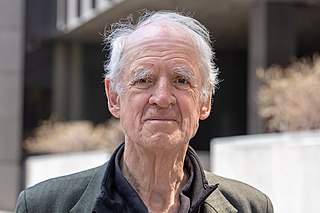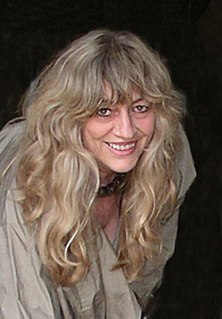A Quote by Norman Lock
Because of an instability at my own core, it comforts me to live, fixed, within a story. If reading is our consolation for having been allotted only one life, I find that writing oneself into a fictional world is even more comforting.
Related Quotes
It is when things go hardest, when life becomes most trying, that there is the greatest need for having a fixed goal, for having an air castle that the outside world cannot wreck. When few comforts come from without, it is all the more necessary to have a fount to draw from within. And the man or woman who has a star toward which to press cannot be thrown off the course, no matter how the world may try, no matter how far things seem to be wrong.
There's the instability of my attitude as an artist, the instability of our perception of the world, and the idea that with this mix, you never know exactly what's the point of view of the filmmaker. This breaks the stability of the belief that a filmmaker is somebody who has a logical relationship with his own material. These elements create this atmosphere that I find more interesting than a normal atmosphere, based only on the characters.
I hate being too serious about anything. If I'm with my friend, I want to be having fun with him or her. And if anybody is reading my story, I want them to be not only reading the story, but I want them to feel they're having fun; that they're enjoying it. So any way you can make it more informal, more fun-filled, more amusing - instead of just a dry story that goes on and on - if there's any way to do that, I like to try and do it.
I didn't know how story worked. So, when writing the screenplay, people introduced me to the science of it. And I'm grateful. I'll probably use that information for the rest of my career, in terms of writing novels or writing stories. And then, of course, to help me live a better story, a more meaningful story
THE WRITER can get free of his writing only by using it, that is, by reading oneself. As if the aim of writing were to use what is already written as a launching pad for reading the writing to come. Moreover, what he has written is read in the process, hence constantly modified by his reading. The book is an unbearable totality. I write against a background of facets.
A realistic expectation also demands our acceptance that one's allotted time on earth must be limited to an allowance consistent with the continuity of our species... We die so that the world may continue to live. We have been given the miracle of life because trillions and trillions of living things have prepared the way for us and then have died-in a sense, for us. We die, in turn, so that others may live. The tragedy of a single individual becomes, in the balance of natural things, the triumph of ongoing life.

































